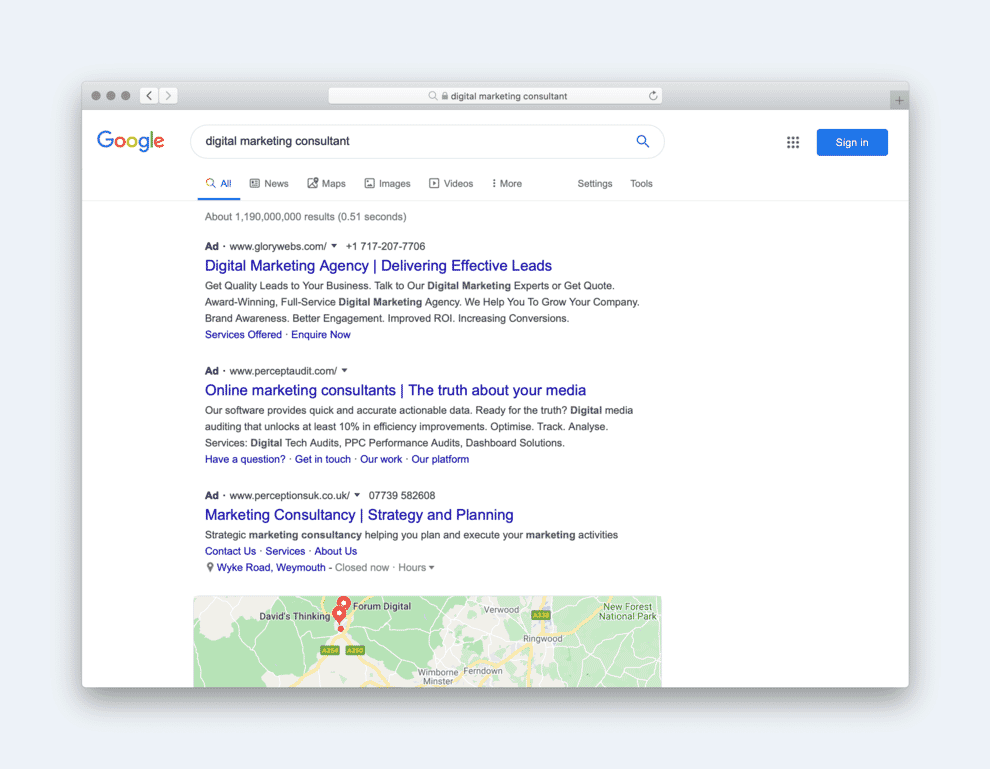
The audio version of this post is sponsored by LinkedIn Jobs.
The internet offers enormous potential for marketing and sales, but also a substantial challenge. It has made the world a noisy place with everybody clamouring for attention. It is hardly surprising that businesses and organisations are looking for outside help and that this has led to a surge in digital marketing consultants.
However, not every consultant is the same when it comes to the internet and so we need to be careful when hiring to make sure we get the right person for the job.

How to Define the Role of Digital Marketing Consultant
As you read this article about digital marketing consultants, you will have a particular set of skills that you associate with that role. However, that may be quite different from what others imagine.
If we define the role of a digital marketing consultant as somebody who advises companies on how to market their products and services using online platforms, then this encompasses a broad group of consultants with an enormous range of backgrounds.
By that definition, a digital marketing consultant might be:
- An expert in pay-per-click.
- A content marketing strategist.
- An authority in email marketing.
- A generalist with experience in several areas.
Depending on their background and experience, consultants will have radically different skillsets and may well not even call themselves a digital marketing consultant.
For example, I call myself a specialist in conversion and user experience. I don’t even mention the terms internet or marketing, and yet the majority of the work I do is focused on marketing online.
8 Ways A UX Consultant Can Help Your Business
How then can you know whether the consultants you are talking to can help? How do you successfully engage the right person?
The answer to that question depends on what you want. Are you looking for a specific outcome or a particular set of skills?
Be Clear on Your Desired Outcomes
I recently observed an interesting interaction between a company owner and a consultant. I knew both parties well and had a good understanding of the consultants skillset.
The business owner asked the consultant whether he could help with search engine optimisation, and the consultant answered: “no, I am not an SEO expert“.
That would have been the end of the conversation if I hadn’t intervened. I knew that the consultant was more than able to help the business owner, but that the business owner had failed to explain his goal, and the consultant had not questioned what the business owner wanted.
The business owner had asked for an SEO specialist because that is what he believed he needed. He wanted more leads for his accountancy business, and he thought he needed help with search engine ranking to achieve that.
In fact, there are many ways to gain more leads online, and an excellent ranking on Google is just one.
With that in mind, when speaking to consultants, I suggest talking about the objective you want, not the method by which you think they should achieve it.
What the business owner really cared about was the outcome, not the means by which it was achieved. If he had expressed his goal, the consultant could have helped.
Of course, sometimes we want to hire a consultant because we are in need of specific skills. In these cases, we need to make that clear too.
Clearly Define the Skills You Need and Why
Many in-house teams hire a digital marketing consultant because they lack expertise in a particular discipline like SEO or conversion rate optimisation. They are looking for advice in that specific area and are often keen to improve their in-house skills by learning from the consultant.
In such cases, the specific specialisms of the consultant are essential, and it is vital to be clear about your expectations.
If you expect the consultant to improve the skills of the in-house team, make that clear. Do not just hope that your team will learn skills by observing what the consultant does. A good consultant will be more than willing to provide training or coaching. However, they will only do so if they understand that knowledge transfer is one of your objectives.
Whatever your objectives, I would still encourage a degree of flexibility in how you engage with a digital marketing consultant as in most cases they will have suggestions about how your approach could be improved.
Be Willing to Adapt Your Requirements
To get full value from a digital marketing consultant, you need to be open to their suggestions even if that means reconsidering the reason you approached them in the first place.
When I work with clients, I typically find myself challenging the client’s requirements from a couple of different perspectives.
Be Flexible About Deliverables
First, sometimes they come to me asking for a specific deliverable. For example, a client wants me to write a report reviewing the effectiveness of their website and suggest improvements that would increase conversion.
However, a report isn’t always the best format for communicating these improvements. Often a prototype is a better medium because we can test it with users, and it is easier for people to visualise the improvements I propose.
So don’t get too hung up on the deliverable as long as the result achieves the business aim you require.
Be Flexible About Scope
Second, many clients underestimate the scope of what the consultant will need to look at to ensure the best business outcome.
For example, you may ask me to make recommendations around how changes to your website might improve your conversion rate. However, often the best ways to improve your conversion rate lie outside of the website itself.
It may be that the answer lies in improving the quality of traffic coming to the site, or focusing on the customer experience.
In other words, when hiring a consultant, be open to their ideas, even if those ideas are not what you were expecting to hear.
Getting Value From Your Digital Marketing Consultant
Ultimately the secret to getting value from any digital marketing consultant (or indeed any consultant) is to give them as much latitude as possible as long as they deliver your overall business objectives.
After all, you are hiring a consultant in the hopes that they will know things that you do not and will make suggestions that would never have occurred to you.
A good consultant will surprise you with approaches that you would never have considered and teach you all you need to know to implement them.
